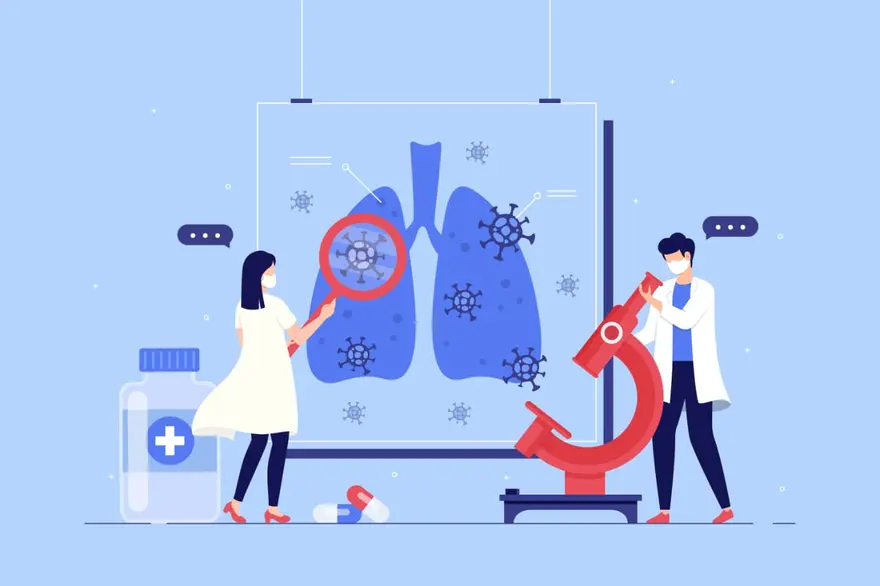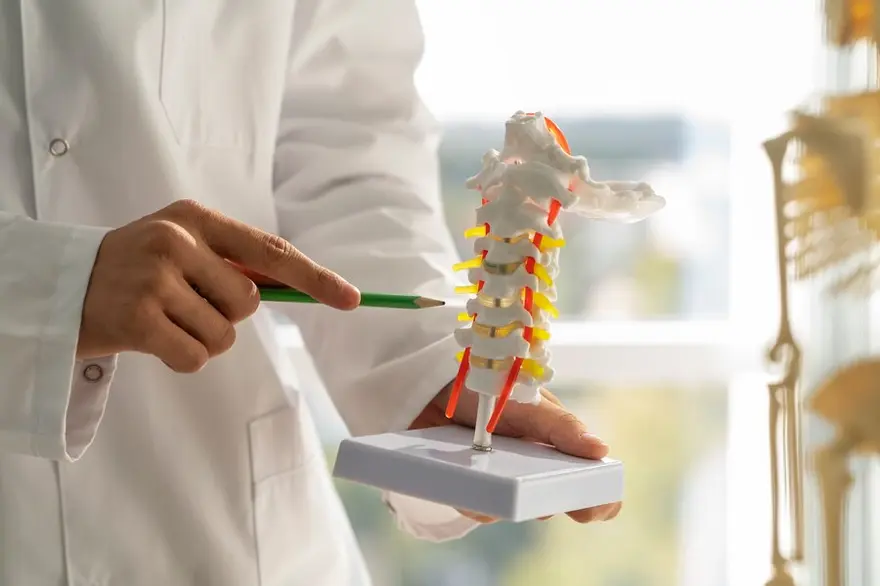Preventive Healthcare
Sexually Transmitted Diseases (STDs): Its symptoms, causes and treatment
5246 Views
0

What is a Sexually Transmitted Disease?
Sexually transmitted diseases or STDs are a collective term that groups several infections and diseases that are primarily caused by sexual contact. STDs can often elude detection for years. However, they can be fatal if left untreated. STDs are usually spread due to vaginal, anal or oral sex.
Some of the major STD causes include bacteria, a virus, protozoa, and arthropods. The fatal STD, which is HIV, is caused by a retrovirus, while other kinds of STDs, such as Gonorrhoea and Chlamydia, are caused by bacteria. Arthropods, on the other hand, cause STDs like pubic lice and scabies. Some of the common STDs can also be spread by other means, like physical contact, but the chances are lower.
What are the types of sexually transmitted diseases?
Below are some common types of STDs and STIs.
- Chlamydia
- Gonorrhea
- HIV/AIDS
- Genital Herpes
- Syphilis
- Pubic Lice
- Trichomoniasis
- HPV
How Common Are Sexually Transmitted Diseases?
Sexually transmitted diseases are more common than you would imagine. According to the WHO website, more than 1 million STDs are acquired every single day. However, the majority of these usually do not show any STD symptoms whatsoever. Annually, it is estimated that there are more than 374 million new cases around the world of curable STIs like Chlamydia, Gonorrhoea and Syphilis.
What are the Symptoms of Sexually Transmitted Diseases?
STD symptoms can vary according to the kind of disease. Even so, there are a few common symptoms that are generally encountered. Some of these include:
- Unhealthy-looking discharge from the vagina or penis
- Sores and warts on the pubic region
- Pain and burning sensation when urinating
- Itching and redness in the pubic area
- Blisters or sores around your mouth
- Anal itching, soreness and reddishness
- Abnormal vaginal odour in case of women
- Abdominal pain
- Fever
These are the common STD symptoms. However, fatal STDs like HIV may not exhibit any symptoms. If you feel any of these symptoms, it is recommended to consult a doctor immediately for the STD treatments.
What Causes Sexually Transmitted Diseases?
Sexually transmitted diseases are caused by a variety of factors. STD causes can include viruses, bacteria, arthropods and protozoa. Each of these microorganisms can contribute towards different conditions. Bacteria, for instance, cause diseases like Chlamydia and Gonorrhoea. On the other hand, viruses may cause HIV/AIDS and HPV.
Are Sexually Transmitted Diseases Contagious?
Yes, most of the sexually transmitted diseases are contagious. Most STDs can be passed from person to person through sexual contact and skin-to-skin contact by touching the infected body part of the person, especially the genitals. Some of the STDs can even be passed on from a mother to a newborn child. That is why it is advisable to consult the healthcare provider for proper treatment for STDs.
Getting timely STD treatments is essential to prevent STD transfer. Hence, you must test yourself on time, speak with your partner about the diagnosis and use protection while having sex.
What are the Risk Factors for Sexually Transmitted Diseases?
The likelihood of someone acquiring an STD or STI varies from person to person. Certain kinds of behaviour, for instance, can increase your chances of getting an STD. Moreover, getting infected with an STD can be dangerous if it remains undiagnosed. For instance, symptoms of STD in females are sometimes absent, which is why women do not usually take any STD treatments. If STDs like Gonorrhoea and Chlamydia are not treated, they can permanently damage a woman's chance of getting pregnant. For instance, Syphilis, if not treated, can cause severe internal damage, resulting in death.
Here are the risk factors that can make you an easy prey:
- Unprotected sex: Having sex without using any protection, such as a condom, is a leading cause of STDs.
- Multiple sexual partners: If one has a sexual relationship with various partners, the chances of getting an STD increase dramatically.
- Substance abuse: This is not a direct cause, but the use of alcohol and drugs inhibits one's judgment, which makes one more inclined towards risky behaviour.
- Drug injection: Addicts often share a needle with others, leading to blood contact, which can carry an STD.
What are the Complications of Sexually Transmitted Diseases?
Many people in the early stage of STD may have no symptoms. However, sexually transmitted infections can cause significant harm to the body and prohibit a normal lifestyle. If a person with STD has not undergone STD treatments, it can lead to several complications in the body. Without STI treatment, the bacteria or virus will run relentlessly in the body, affecting multiple organs. Some common complications of an STD include:
- Pain in the pelvic region
- Pregnancy complications
- Permanent infertility
- Eye inflammation
- Heart disease
- Certain cancers like HPV-related cervical and rectal cancer
- Arthritis
How are Sexually Transmitted Diseases Diagnosed?
Physical examination and multiple tests can assist in diagnosing the sexually transmitted infection. Moreover, your healthcare professional will consider your sexual and medical history for accurate diagnoses. Below are some of the tests which can diagnose STDs:
- Urine Tests: A urine test is often the easiest way to know about the STD disease.
- Blood Tests: Certain STDs only appear in a blood sample under a microscope.
- Fluid Samples: Generally, a saliva sample is taken if you show signs around your oral cavity.
What is STD Testing?
STD testing refers to the examination of samples taken from your body and diagnosing them so that STD treatment can start if found positive. It includes:
- Blood testing: It is primarily used to diagnose HIV, syphilis and sometimes, herpes. A phlebotomist will draw blood from your vein and send the sample to a lab for testing.
- Urine testing: A urine sample may be asked to check for gonorrhoea and trichomoniasis. Patients will have to urinate in a sterile cup and provide the sample.
- Swab testing: It is used to diagnose diseases like Chlamydia and HPV. A swab sample will be taken from the site of infection.
How Often Should I Get Tested for STIs?
Many healthcare professionals recommend annual STI testing. You can often get tested once in 3-6 months in case of multiple sex partners. Some doctors also recommend to get tested before having sex with any new partner. After all, having a regular test helps to trace, track down, and treat STIs which otherwise can be left untreated and become severe in future.
How are Sexually Transmitted Diseases Treated?
STDs are no different from any other infection that you acquire. The most common STD treatment methods include:
- Antibiotics: Antibiotics can help to stop the growth of bacteria-induced STDs like syphilis and gonorrhoea.
- Antiviral drugs: Antiviral medicines work on HPV and HIV. Even though HIV is theoretically not treatable, it can be managed through a medicine of antiviral drugs.
What is Expedited Partner Therapy?
Expedited Partner Therapy, or EPT, is the medical practice of providing someone with a prescription for an STD treatment that they can give to their sexual partner. It presumes the presence of the infection without completing a clinical assessment. This treatment method is completely preventative and keeps one safe even if unnecessary. It is usually recommended for people who engage in risky sexual behaviours and have multiple partners.
How Soon After Treatment Will I Feel Better?
Depending on the severity of your STD symptoms, your treatment process may take a few weeks or even a few months. However, your symptoms usually start reversing within the first week of treatment. However, since the virus or bacteria will remain in your bloodstream, it is essential to complete the whole course of medicines.
How Can I Lower My Risk of Developing a sexually transmitted disease?
Follow these few simple steps to remain free from sexually transmitted diseases:
- Practice Safe Sex
If you plan to have intercourse with someone whom you may not necessarily know well enough, make sure to use protection. Do not use condoms with natural membranes, as they are semi-permeable and will not stop viruses.
- Avoid Multiple Partners
Having sex with one partner whose sexual history you know will inevitably prevent you from acquiring an STI. The more the number of sexual partners you have, the higher your chances of getting an STD are.
- Get vaccinated
Getting vaccinated before engaging in sexual activity can prevent the onset of certain kinds of STDs like HPV, hepatitis A and hepatitis B. They do not work for other types of STDs, especially ones caused by bacteria.
- Wait and Test
It is ideal not to involve in sexual activity or anal sex with a new partner until you and the partner are tested for sexually transmitted infections.
- Use condoms consistently
You must use a dental dam or condom while having oral, vaginal or anal sex. Avoid the usage of oil-based lubricant or petroleum jelly with a condom, as such barriers provide less protection for STDs like herpes or HPV.
Can The Spread of Sexually Transmitted Diseases be Prevented?
It is possible to stop an STD from spreading further in your body. If you think you are exhibiting STI male symptoms, you can consult a specialist and get a prescription regime to help you stop the further onset of STD symptoms. It will also knock back the existing virus or bacteria in your body and gradually decrease its count in your bloodstream. For example, HIV can be controlled and managed through strong antiviral drugs to the extent that it will not show up in a blood test.
What Can I Expect if I Have a Sexually Transmitted Disease?
If you have contacted an STI or STD person, it will manifest in several physical signs, especially if you are male. Females are often asymptomatic for several STDs. Here are some of the common STD symptoms that may show up:
- Clear white or greenish vaginal discharge
- White discharge from the penis head
- Vaginal or penile irritation and itching
- Strong vaginal odour
- Pain during intercourse
- Burning sensation when urinating
What if I Have an STI and I am Pregnant?
If you are pregnant with STD symptoms, know your STD cause first by getting tested. Consult with your urologist to know about further process.
What's the Outlook for Sexually Transmitted Diseases?
While most STDs are non-fatal, HIV can cause death eventually. However, that can be controlled, too, using medicines and drugs. Having said that, if you acquire an STD once, it increases your chances of getting it a second time.
How Do I Take Care of Myself if I Have a Sexually Transmitted Disease?
If you are diagnosed with STD, it is essential to take care of yourself and get better first. Here are some of the things you should do:
- Abstain From Sex
For the time being, you shouldn't engage in any sexual activity. Let your body heal, and take the time to rethink your decisions.
- Follow Healthy Lifestyle
Follow a healthy lifestyle, maintain a balanced diet and follow proper hygiene. Give your body the time it needs to recover.
- Talk with your partner.
You must let your partner know about your STI so that you can freely speak with the doctor regarding treatment and tests.
When Should I See a Doctor?
If you are showing STD symptoms, make sure to consult a specialist. Do not let it linger and grow stronger. The faster the doctors can diagnose it and provide STD treatments, the better!
What Questions Should I Ask My Doctor?
These are some of the questions you should ask if you have tested positive for an STD:
- When should I take my pills, and in what dosage?
- What are the things I must do to recover faster?
- Is there a chance for the disease to recur even after treatment?
- How long until I can have sex again?
Conclusion
Addressing STDs and STD causes is crucial for personal and public health. Regular screenings, safe practices, and honest conversations with partners and healthcare providers contribute to an informed society. Moreover, it is essential to recognise that anyone, regardless of age, gender, or background, can be affected by STDs. Early detection and treatment can prevent complications and long-term health issues, ensuring that you can continue to lead a fulfilling and healthy life. So, do not assume that you are not at risk or wait for symptoms; take control and prioritise your sexual health. Get yourself tested for STDs with Metropolis Labs and ensure the healthy well-being of you and your partner or partners.























 WhatsApp
WhatsApp